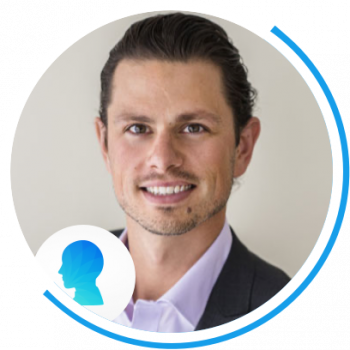Coping with Stress: A Video Guide to Responding Skillfully
Apr 30, 2023This article provides a step-by-step guide on the "Relax, Reflect, and Respond" mindfulness practice. It also discusses the evidence-based benefits of mindfulness for stress, anxiety, and depression.
In today's fast-paced world, stress and anxiety are becoming increasingly prevalent. Whether it's work-related pressures, financial difficulties, or personal issues, keeping our emotions in check can be challenging. However, practical mindfulness techniques can help us manage these feelings and respond calmly to stressful situations.
One such technique is the "Relax, Reflect, and Respond" practice. In this article, we will provide a step-by-step guide to this mindfulness practice and discuss the evidence-based benefits of mindfulness for stress, anxiety, and depression.
The Evidence-Based Value of Mindfulness for Stress, Anxiety, and Depression
Mindfulness is a practice that involves being present and fully engaged in the moment without judgment. It is a way to train your mind to focus on the present moment and let go or approach worries about the past or future with greater openness and acceptance. Research has shown that developing your innate capacity to be mindful can effectively reduce stress, anxiety, and depression.
For example, a 2018 study published in the Journal of Psychiatric Research found that mindfulness-based stress reduction (MBSR) was effective in reducing symptoms of anxiety and depression in patients with generalized anxiety disorder. Another study published in the Journal of Consulting and Clinical Psychology found that mindfulness-based cognitive therapy (MBCT) was effective in reducing symptoms of depression in patients with a history of recurrent depression.
Step-by-Step Guide to the "Relax, Reflect, and Respond" Practice
The "Relax, Reflect, and Respond" practice is a simple mindfulness technique that can be done in as little as three breaths. It is based on the “Responsive Breathing Space” practice from mindfulness-based cognitive therapy and can be used whenever we need a moment to reset and refocus. Here's how to do it:
Step 1: Start by sitting comfortably and choosing a time to practice. With eyes opened or closed, call to mind the challenge you're dealing with or will be dealing with. Notice what thoughts, emotions and body sensations come up for you. Take some time to notice each, and when you get to body sensations, stay there for a bit longer.
Step 2: Now relax, and focus your attention on breathing - feeling your body breathing. When your attention wanders, just bring it back to your breath for a few moments.
Step 3: Now, reflect on what you need most in this situation. Maybe it's space or time or more information. And, what does the situation or the people involved need most? Take a moment to reflect.
Step 4: How can you respond now that you've had time to focus and gain perspective? It can be helpful to ask yourself, “Can I let it go? If I can’t let it go, can I let it be? Or does this need addressing?” Take a moment to decide how you will respond.
If you need more time, you can replay this practice or journal each step of the way. You can do this practice when you want to gather yourself before an important meeting, or before responding to an emotionally triggering email. This can also be used during a stressful conversation or if you have a difficult decision to make and want more perspective.
In conclusion, the "Relax, Reflect, and Respond" practice is a simple but effective mindfulness technique that can help us to manage stress, anxiety, and depression. We can improve our mental and emotional well-being by focusing, gaining perspective, and responding calmly. Try experimenting with this practice and find what works best for you. Remember, with regular practice, your capacity to be mindful can become a powerful ally for managing stress and improving your overall quality of life.

Michael Apollo MHSc RP is the founder of the Mindful Society Global Institute. Prior to founding MSGI in 2014, he was the Program Director of Mindfulness at the University of Toronto. He is an educator, licensed mental health clinician and certified facilitator in Mindfulness-Based Stress Reduction and Mindfulness-Based Cognitive Therapy.
References:
Disclaimer
The content in our blogs is not intended to be a substitute for professional medical advice, diagnosis, or treatment. Always seek the advice of your health provider with any questions you may have regarding your mental health.
Join our weekly newsletter for insightful articles and free events
Be the first to learn about upcoming FREE events, receive early bird pricing for courses and stay in touch with weekly newsletters!


